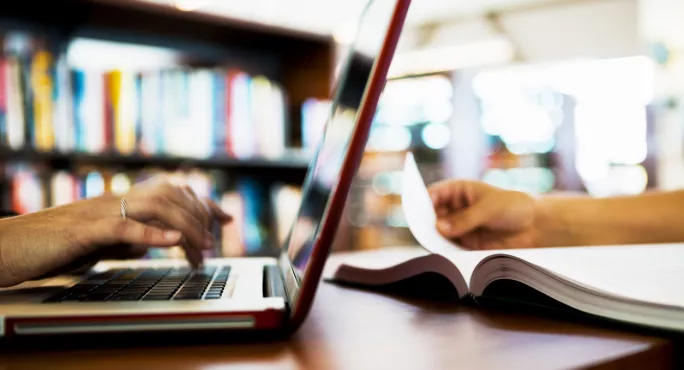- Home
- ‘Textbooks don’t need batteries’
‘Textbooks don’t need batteries’

As another academic year draws to a close, one of the many rituals that teachers will be performing will be the annual textbook return. Checking numbers against lists; trying to find names scribbled in haste on now-ripped front-matter pages; weighing up whether the book has endured reasonable wear and tear, spent the year propping up a PlayStation or been ravaged by a dog.
If Pearson has its way, this ritual may be on its way out. It has announced that, beginning with its vast American operation, it will be phasing out physical textbooks and transitioning gradually to a purely digital delivery model.
The death of the physical textbook is not imminent, but - as schools fill stock cupboards again and think about budgeting for new texts - this move from Pearson should give teachers pause for thought.
Real boon
To be clear, there are advantages to digital delivery. As anyone who has tried to deliver the new Pearson Edexcel A-level mathematics content will know, when a key topic is completely missing from a physical textbook and the publisher sends you a PDF - to what, tape inside each copy? - you begin to see that real-time digital updating of resources could be a real boon.
There are also potential gains for fantastic teachers with great resources to share. Rather than having to invest thousands to get a book written, designed, set, printed, marketed and distributed, smaller-scale digital resource operations delivered by excellent and enthusiastic teachers could quickly freshen up a rather staid and closed shop. There could be environmental gains, and some potential pluses for schools gaining cupboard space and not having to worry about replacing dog-eared copies. I’m sure students will miss the traditional first homework of “Cover your textbook and, no, you’re not allowed to use copies of Love Island: the magazine,” but I expect they’ll get over it.
Sensual imprint
However, there are some fundamental issues that I think educationalists need to be absolutely clear on before welcoming this. Digital is not always better. We need to think about the core of what we do, and make sure that the move to digital-only does not undermine that.
I know from talking to my own students that they develop - as I do - a kind of relationship with a physical text, which is impossible with screen-based content. Students often fill our textbooks with Post-it Notes until they become highly personal, highly colourful and definitely tactile objects.
As I have argued recently, this multisensory dimension to knowledge and skill acquisition is only now becoming clear to researchers. If, as I say in my earlier article, “brain is hand and hand is brain”, then reducing the physicality of a resource is likely to diminish the ways in which knowledge is retained.
One of the things I have struggled hugely with, when reading an e-book, is the lack of any physical sense of where I am in a text. When we read a book, as we turn the pages we gradually pass its weight from right hand to left. This leaves a sensual imprint of where something was seen, and also creates the sense of a contiguous chain of linked ideas. When reading on a screen, speedy navigation and cross-referencing become tiresome. I have heard other teachers say that, when presented with e-resources, students tend to print out physical copies because they far prefer them.
Huge decisions
This then brings into play a final question: that of equality. What if some students or schools are well resourced enough to print, while others are stuck on slow, old and unreliable digital devices that parents or schools cannot afford to update?
Part of our role as educators in a fast-moving technological society is to be reflective, and to vigorously defend our expertise about what we do. It strikes me that this is precisely a moment when we should speak up and demand a place at the table before huge decisions to abandon physical books are taken.
Point one on my agenda for that meeting would be that books never need batteries, never crash, and never need wi-fi. Point two is that the last thing parents want is kids spending more time looking at screens. After that, if we were allowed to turn the stock cupboard into a microbrewery or a darkroom, I’d be all ears.
Kester Brewin teaches maths in south-east London. While working as a teacher, he has been a consultant for BBC Education, and is the author of a number of books on culture and religion. He tweets @kesterbrewin
Keep reading for just £1 per month
You've reached your limit of free articles this month. Subscribe for £1 per month for three months and get:
- Unlimited access to all Tes magazine content
- Exclusive subscriber-only stories
- Award-winning email newsletters



